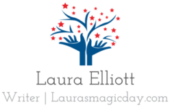Everything. Right now it’s teaching me about the WWI and WWII in Europe and Asia. I’m writing an historical novel that takes place over a few generations, based on the true life of members of my family. And while I’ve got loads of primary information from interviews and letters, I need to know specifics. Specifics I can only learn through the written word of the time. I can also only learn certain things from writers who’ve done exactly what I hope to do, fictionalize a real life, or real lives. Who have I turned to?
Through the amazing eyes of Erich Maria Remarque I’m able to be given a window into the horrors of WWI trench warfare. Here’s a beautiful excerpt from this novel, one of the most beautiful passages I’ve ever read:
“We sit opposite one another, Kat and I, two soldiers in shabby coats, cooking a goose in the middle of the night. We don’t talk much, but I believe we have a more complete communion with one another than even lovers have.
We are two men, two minute sparks of life; outside is the night and the circle of death. We sit on the edge of it crouching in danger, the grease drips from our hands, in our hearts we are close to one another, and the hour is like the room: flecked over with the lights and shadows of our feelings cast by a quiet fire. What does he know of me or I of him? Formerly we should not have had a single thought in common––now we sit with a goose between us and feel in unison, are so intimate that we do not even speak.”
What’s amazing to me about this story is that the author lived through such a time, and yet was able to observe and write about it in such an eloquent way that I can truly feel what it was like to find, kill and roast a goose during a barrage of battle.
David Grann’s dedication to his research inspired me. When I get discouraged that I might not be able to find that detail, or I might not be able to sort out the history of my novel, I have David Grann’s dedication to inspire me. This is an historical novel that is written like a wonderful story, and is a style that I learned from and hope to emulate in my novel.
I feel that every book I read is a road map to empathy. Whether it’s learning about the past or the future. Reading is a window into other worlds. And beyond the enjoyment of the stories, they influence the way that I see my world and my role in it.
What do my fellow carnis learn from their reading? Click here to find out!



Great post, Laura! Research is so important… I love doing it myself–how it helps so much to ingrain you in the story when all of those components are crystal clear…
So true:) It does keep the fiction “real” Trouble with me is not knowing when to STOP! It’s SO engrossing!
One of my friends is thinking about writing a WWII novel, but she’s interested in some very small army and their experiences on D-Day. She’s having so many issues with research. Maybe I’ll suggest this one to her. :3
I think it really helps to have a very specific event like your friend does. It really helps to focus the research! All Quiet on The Western Front is written about WWI trench warfare from the German perspective. I would recommend that your friend find a work of fiction, based on truth, that is written from the perspective as closest to the people of the battle she’s looking to fictionalize. But, of course, primary material is the most important. If she could get access to a real person, or interviews [of which there are many] online of a person who actually was in that battle. Or people closely associated with the regiment.
Good luck to your friend Mckenzie, I’m cheering her on!
“I feel that every book I read is a road map to empathy.” That is so beautifully put, Laura! What a gorgeous, meaningful post… I shall have to read the first book you mentioned! X
TY, Suzy:) Means a lot coming from such a great writer! All Quiet on the Western Front is an amazing novel. I think because the writer not only lived through the experience but because he had the writers ability to observe it all, as he tried to survive one barrage after another! The writing drops into the background and it’s the story that takes over. Something I aspire to:) Thanks for stopping by!